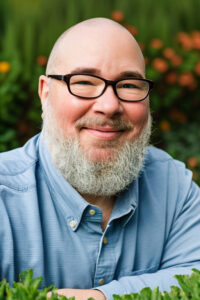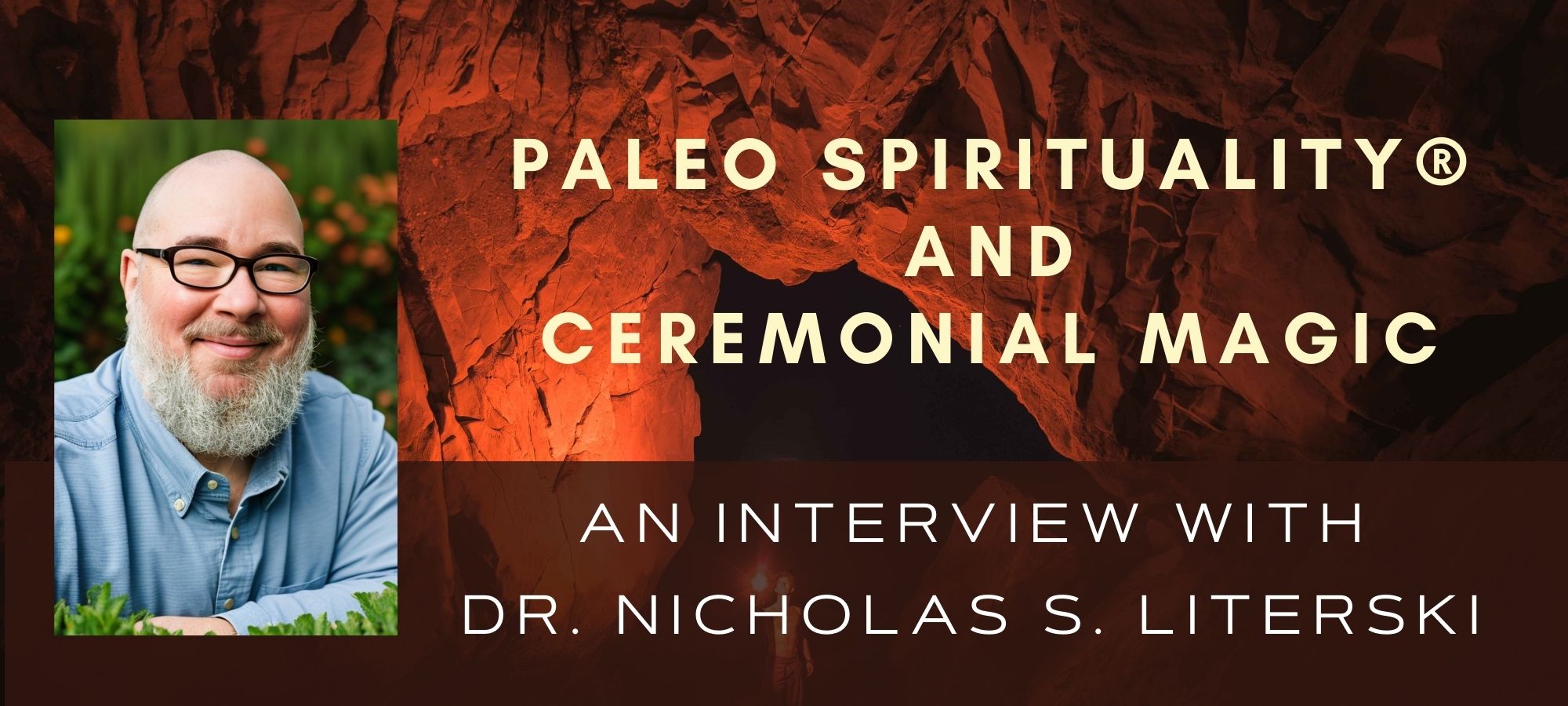Angela: So much of your work, including your short booklet, Five Steps to Rediscovering Your Own Authentic Spirituality, and your work with your clients, finds spirituality to be of the essence. Perhaps it’s wrong to assume this, but I wonder what spark of the divine, what glimpses of light brought you to this calling? Are you of a specific religious tradition, or is this relationship with spirituality something akin to the search for psyche, for self-understanding?
 Nick: All of the above! My interest stems from early childhood. Spirituality has always been of primary interest for me. My own journey has run a wide range. I spent many years in a conservative, controlling, high-demand religious organization. I left that tradition when I experienced a change of faith and also came out of the closet. That began a period of searching. I went through about a 4-year purge. When the right time came, I participated in a workshop where the focus was reignited for me, and shortly after I began a 3-year process of training with a shamanic practitioner. I learned many wonderful things, but I knew that process would come to a close. I then enrolled in a master’s program in spiritual guidance. In the course of that, I was introduced to Jung, which led me to the DJA program at Pacifica.
Nick: All of the above! My interest stems from early childhood. Spirituality has always been of primary interest for me. My own journey has run a wide range. I spent many years in a conservative, controlling, high-demand religious organization. I left that tradition when I experienced a change of faith and also came out of the closet. That began a period of searching. I went through about a 4-year purge. When the right time came, I participated in a workshop where the focus was reignited for me, and shortly after I began a 3-year process of training with a shamanic practitioner. I learned many wonderful things, but I knew that process would come to a close. I then enrolled in a master’s program in spiritual guidance. In the course of that, I was introduced to Jung, which led me to the DJA program at Pacifica.
These days, my own spiritual path has gone back to the roots of earlier religious traditions that have their roots in ceremonial magic. I have long resonated with the magician archetype. For several years now, I have focused on stepping into that personal myth.
Angela: What is the magician archetype about? I’ve heard it used employed most often by men, perhaps because the word “witch” is assumed to be for women?
Nick: I identify as queer and nonbinary, so I really do not focus on gender there. Historically there was a difference between witches or cunning folk, which were usually women, versus the so-called high magic of the upper-class, most often performed by men. There was an unfortunate class distinction there, because they were doing many of the same things. The elite had the time and resources, however, to pay attention to detailed astrology and such things.
Aleister Crowley described magic as the art and science of making change in accordance with will. Ceremonial magic is about making change in the world around us and in our own lives. Magic really consists of two parts. First there is theurgy, the search for, and approach toward the divine. Second there is thaumaturgy, or wonder-working, which seeks to make change in the external world. Both of these things come together in the role of magician. This is different than how most people use the word “witch,” although there are no universals here. The witch is often more specifically nature based. The ceremonial magic tends to be focused on working with various spirits—be they heavenly, elemental, or chthonic, using tools such as astrological alignments, alchemy, and other correspondences. Magicians today have access to grimoires, manuscripts that were really people’s working books for their magical practice. We are able to connect with people who practiced hundreds of years ago. We see some of these ideas within Jung’s work. I would say that magic is an important aspect of depth psychology that has not been given due attention, and the time has come!
Angela: Thank you so much for sharing with us. Are there any upcoming projects for you that we should have our eyes open for? What’s next for you?
Nick: My primary project now is, Ceremonial Magic in the work of C.G. Jung, a book I am under contract with for Routledge. As I have studied the Red Book and other works by Jung, I keep seeing hints that he had familiarity with magic and may have dabbled. He had several books on magic. It shows up throughout his work, yet he doesn’t specifically focus on it. When he was 15, his mother encouraged him to read Faust, the legend of a scholar who engaged magic to receive knowledge and experiences through a pact with Mephistopheles. That story impacted Jung dramatically throughout his life. Part of that was a prejudice when it came to thaumaturgy. Just as Jung had his struggle between Personality 1 and Personality 2, he had a similar struggle with magic. He was clearly drawn to it, yet he was also very resistant to it. This has turned out to be a fertile area of research.
Many of us in my DJA cohort came to the realization that we were not at Pacifica to just learn and parrot Jung. We were at Pacifica to take Jung’s work forward. Part of that lies in finding these breadcrumbs he left behind for us to investigate further.
Angela: Thank you for speaking with me, and I look forward to reading your book when it comes out!
You can read Part I of this interview here. To learn more about our DJA program, click here.

Nicholas S. Literski, JD, PhD, is an Adjunct Senior Lecturer in Psychology and Senior Program Manager in the School of Undergraduate Studies at the California Institute of Integral Studies, and a professional spiritual guide. Nick holds a PhD in Depth Psychology with Emphasis in Jungian and Archetypal Studies from Pacifica Graduate Institute, and a Master’s Degree in Spiritual Guidance from Sofia University. Their research interests include depth psychological reflections on spirituality, Paleolithic cave art, ceremonial magic, sexual orientation, and gender identity. Nick’s work has been published in Psychological Perspectives; Immanence: The Journal of Applied Mythology, Legend, and Folklore; Somatics Magazine-Journal of the Mind-Body Arts and Sciences; and the recent compilation, The Reality of Fragmentation and the Yearning for Healing: Jungian Perspectives on Democracy, Power, and Illusion in Contemporary Politics. Their new book, Method Infinite: Freemasonry and the Mormon Restoration, was released in August 2022.

Angela Borda is a writer for Pacifica Graduate Institute, as well as the editor of the Santa Barbara Literary Journal. Her work has been published in Food & Home, Peregrine, Hurricanes & Swan Songs, Delirium Corridor, Still Arts Quarterly, Danse Macabre, and is forthcoming in The Tertiary Lodger and Running Wild Anthology of Stories, Vol. 5.


